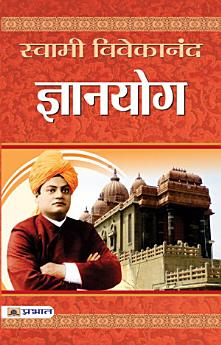Gyanyoga: Bestseller Book by Swami Vivekanand: Gyanyoga
Swami Vivekanand
Jan 2021 · Prabhat Prakashan
4.0star
25 reviewsreport
Ebook
232
Pages
reportRatings and reviews aren’t verified Learn More
About this ebook
मानव-जाति के भाग-निर्माण में जितनी शक्तियों ने योगदान दिया है और दे रही हैं, उन सब में धर्म के रूप में प्रगट होनेवाली शक्ति से अधिक महत्त्वपूर्ण कोई नहीं है। सभी सामाजिक संगठनों के मूल में कहीं-न-कहीं यही अद्भुत शक्ति काम करती रही है तथा अब तक मानवता की विविध इकाइयों को संगठित करनेवाली सर्वश्रेष्ठ प्रेरणा इसी शक्ति से प्राप्त हुई है। हम सभी जानते हैं कि धार्मिक एकता का संबंध प्रायः जातिगत, जलवायुगत तथा वंशानुगत एकता के संबंधों से भी दृढ़तर सिद्ध होता है। यह एक सर्वविदित तथ्य है कि एक ईश्वर को पूजनेवाले तथा एक धर्म में विश्वास करनेवाले लोग जिस दृढ़ता और शक्ति से एक-दूसरे का साथ देते हैं, वह एक ही वंश के लोगों की बात ही क्या, भाई-भाई में भी देखने को नहीं मिलता। धर्म के प्रादुर्भाव को समझने के लिए अनेक प्रयास किए गए हैं। अब तक हमें जितने प्राचीन धर्मों का ज्ञान है, वे सब एक यह दावा करते हैं कि वे सभी अलौकिक हैं, मानो उनका उद्भव मानव-मस्तिष्क से नहीं बल्कि उस स्रोत से हुआ है, जो उसके बाहर है।
Ratings and reviews
4.0
25 reviews
जसबीर बिष्ट
- Flag inappropriate
March 12, 2019
google was make money other swami books are low price and it is high price
11 people found this review helpful
Ranjit Sah
- Flag inappropriate
May 15, 2020
बहुत अच्छे किताब है इसे जरूर करना मेरे साथ
6 people found this review helpful
A Google user
- Flag inappropriate
January 12, 2018
Best book for student
15 people found this review helpful
About the author
Swami Vivekananda's profound work, "Gyanyog," offers essential Spiritual Teachings on Jnana Yoga, presenting the core principles of Vedanta Philosophy, specifically focusing on Advaita Vedanta. This deep dive into Indian Philosophy explores the true Nature of Reality and the concept of the Divine Within, guiding Truth Seekers towards the Path to God. Vivekananda explains Maya Explained as the illusion obscuring the true Soul and Self, revealing the ultimate Brahma Concept. The book illuminates the Liberation Path and the process of achieving Freedom from Maya through Knowledge Yoga and Self Realization. Through Philosophical Essays, he clarifies What is Maya, emphasizing the Truth and Illusion inherent in the perceived world. Vivekananda discusses Human Potential and the means for Overcoming Suffering, highlighting the journey of Spiritual Evolution. The text references foundational texts like Upanishad Philosophy and Vedas Teachings, and touches upon the Karma Law and Reincarnation Explained. He contrasts Advaita with schools like Dvaita Vedanta, Vishishtadvaita, Samkhya Philosophy, Nyaya Philosophy, and Mimamsa Philosophy, and mentions figures like Buddha and Vedanta's connection and the contributions of Shankaracharya Philosophy. Based on his acclaimed Swami Vivekananda Lectures, the book delves into the Origin of Religion, the Good and Evil Duality, the formation of Mind and Character, the importance of Spiritual Freedom, and the vision of the Ideal Man. This Vedanta Explained text advocates for Religious Unity and the power of Yoga Spirituality, ultimately pointing towards the inherent divinity and the path to freedom.
Rate this ebook
Tell us what you think.
Reading information
Smartphones and tablets
Install the Google Play Books app for Android and iPad/iPhone. It syncs automatically with your account and allows you to read online or offline wherever you are.
Laptops and computers
You can listen to audiobooks purchased on Google Play using your computer's web browser.
eReaders and other devices
To read on e-ink devices like Kobo eReaders, you'll need to download a file and transfer it to your device. Follow the detailed Help Center instructions to transfer the files to supported eReaders.






